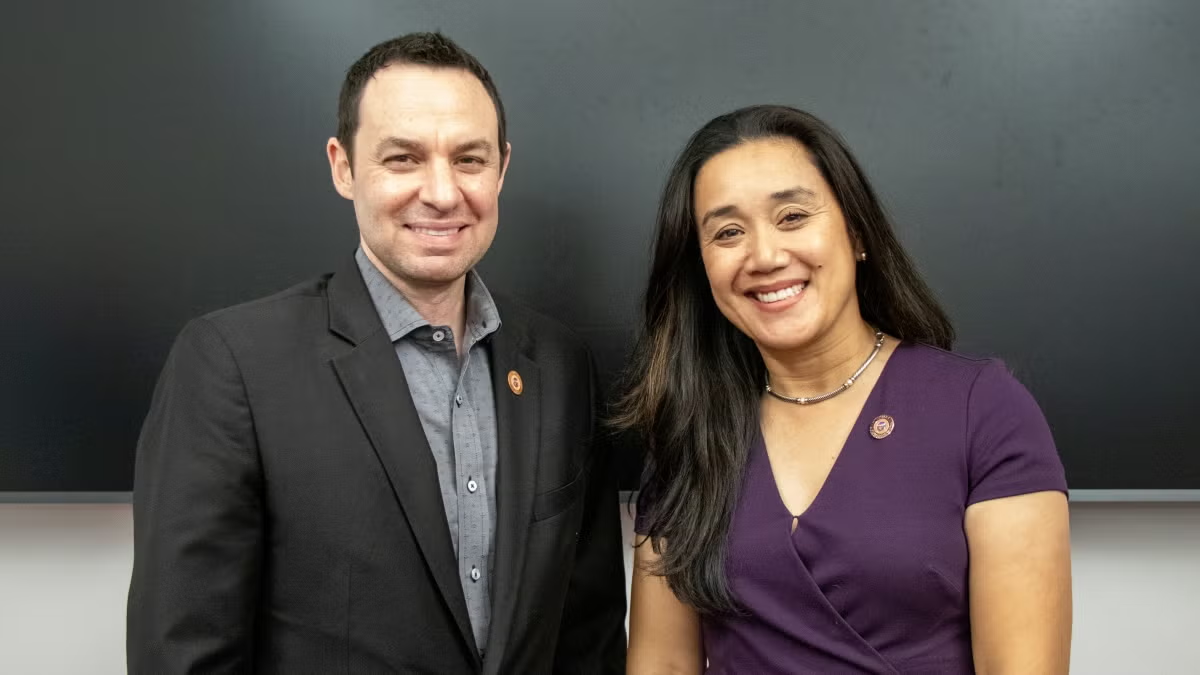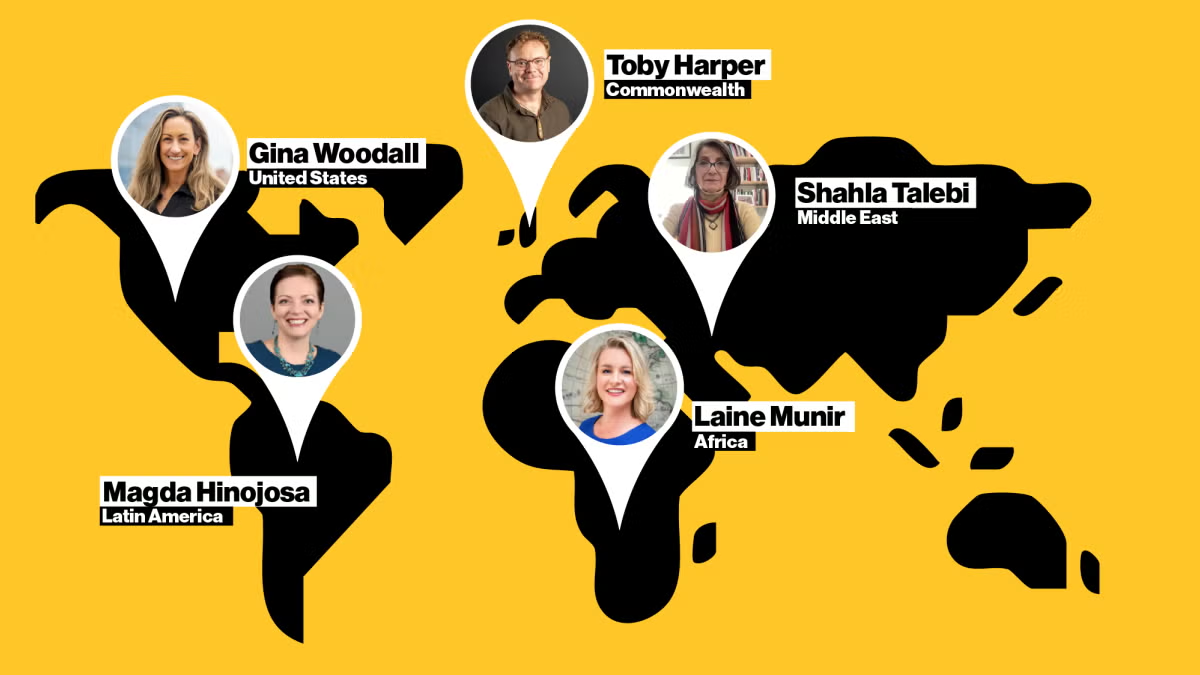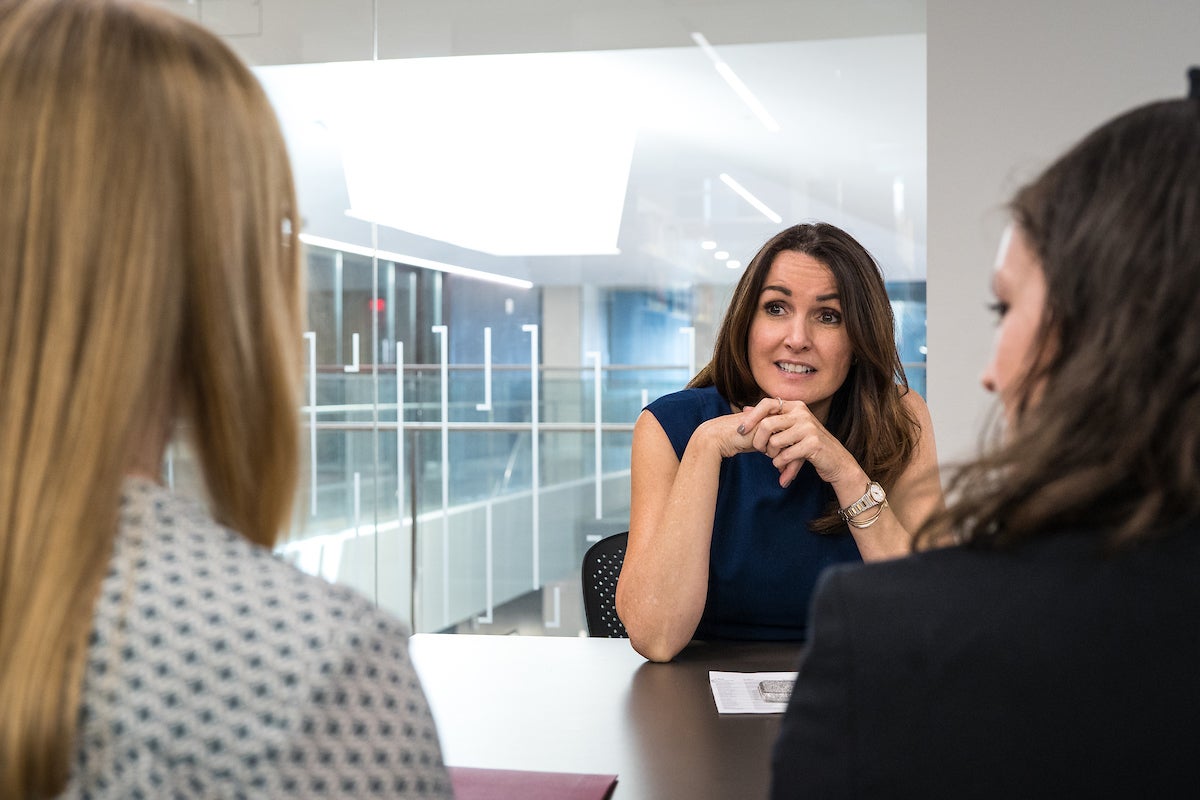The law is a mystery to most people and can be a scary path to navigate.
Often it seems there is nowhere to turn — or it takes thousands of dollars to find the answer.
Thankfully there’s the Arizona Legal Center.
“We all think we know the general concepts of the law, but when we are thrown into a legal issue, it becomes abundantly clear that unless you really know how to navigate the legal system you can get yourself into trouble quickly,” said Victoria Ames, director of the Arizona Legal Center, which is housed on the third floor of the Beus Center for Law and Society on Arizona State University’s Downtown Phoenix campus.
“People come here, and we give them direction.”
Sometimes they receive more than just direction: They get human connection, a sympathetic ear, solid legal assistance and often a resolution.
Established in September 2016, the Arizona Legal Center is a nonprofit organization that provides guidance to community members, mostly at-risk and underserved populations who have legal questions and concerns, so they can make informed decisions about how to deal with those issues.
The center is run by Ames, who is the dean of external projects at ASU’s Sandra Day O’Connor College of Law, and Michelle Sweeney, assistant director of the center. Together they enlist the volunteer services of about 100 local lawyers and ASU Law students, who host regular events for individuals and businesses at satellite locations and offer in-office hours to provide resources, guidance and information about key legal topics that frequently arise among the community.
Ames said the center formed because ASU Law Dean Doug Sylvester believes the school should stand for inclusion and accessibility within the community.
“With the need for legal assistance far exceeding the resources available to people, we wanted to effect change on a much grander scale within the community,” Sylvester said. “This notion we could start an independent not-for-profit with community funding, separate from the law school, is truly the intersection of law and society that ASU Law wants to be the forefront of.”
Guidance in frequently sought practice areas include criminal and civil law, landlord/tenant law, employment law, estate planning, immigration, family law, juvenile law, health care and mental health law, Social Security claims, veterans’ issues and licensing.
According to the center’s recently released annual report, they opened 985 cases, made 1,299 telephone contacts resulting in immediate help and assisted 2,285 people in the last fiscal year.
“We were very cautious when we opened our doors what expectations we could fulfill, and I think we’ve certainly done a good job,” Ames said. “I was pleased that our expectation was not unfulfilled."
Ames said those numbers wouldn’t be possible without the help of the volunteers, students and corporate support. PetSmart is one of about 30 sponsors who offer resources to the center.
“I volunteer in a variety of different areas. The reason why I like the Arizona Legal Center is because it’s a great setup in terms of helping people in the community and mentoring students,” said Michael Kuehn, senior counsel for PetSmart who specializes in real estate and landlord-tenant issues. “When I was a law student, I really didn’t have an opportunity to work with licensed attorneys. I can offer insight and help with the thought process and breaking down an issue.”
Kuehn, who has been practicing law for about a dozen years, said most of the issues with the community require a simple answer and clients often find resolution after just one visit.
Attorney and Sandra Day O'Connor College of Law Assistant Dean Victoria Ames chats with students about their legal goals at the Arizona Legal Center's community service day project on Aug. 10. Photo by Charlie Leight/ASU Now
“They are just looking for that first step to take, and we can give that to them,” Kuehn said.
Offering this type of legal assistance to the underserved is personally fulfilling to criminal lawyer and constitution scholar Robert J. McWhirter.
“I think the attorneys that are the happiest in the profession approach it as a service industry and with the idea of actually helping people,” McWhirter said. He said an added benefit is getting to mentor ASU Law students, who assist the attorneys gathering information during a “legal triage” in the initial consultation.
Ames said the legal triage helps students distill vital information into a brief, digestible summary for the attorneys, who can then offer clear direction to those seeking advice.
“They learn how to ask the right questions, which is a big skill,” Ames said. “They also learn how to deal with upset clients and keep them focused on the legal issue. As attorneys, they’ll be doing the same things.”
Once it has been determined that there is a valid and viable claim that can be addressed through an appropriate referral, a center attorney will provide a direct contact to the person or organization that can help address the issues identified. It could also come in the form of providing information to community services or an invitation to attend a workshop, event or clinic offered by the center. In August, the center hosted a volunteer event at the Sandra Day O'Connor College of Law, which drew approximately 100 students. It was an eye-opening experience for Dustin Rector, a first-year law student.
“I thought it was an awesome event because people who couldn’t normally afford an attorney were getting some high-end help,” said Rector, who will volunteer at the center over the holiday break. “It also set an example to see how attorneys can give back to the community.”
And that’s exactly why attorney Sam Coffman, an attorney with Dickinson Wright, volunteers at the center a few times a month. Coffman, who specializes in employment, labor law and civil litigation, said there’s a public need and a student need. The center addresses both.
“The law students are just learning and they need attorney assistance, and they’re grateful to get it,” Coffman said.
In regards to helping the public, Coffman said he doesn’t feel he’s doing anything special.
“It’s just an opportunity to give back,” Coffman said. “Besides, I’ve never had a day down there that wasn’t fun.”
The Arizona Legal Center office is located at 111 E. Taylor St., Suite 340, Phoenix. Contact by phone at 480-727-0127; calls returned 9 a.m to 3 p.m. Mondays through Fridays. Walk-in office hours this semester are 1 to 3 p.m. Mondays through Thursdays. They also have visiting hours at the Maricopa Superior Court Law Library, 101 W. Jefferson St. in Phoenix, from 11 a.m. to 1 p.m. Tuesdays and 1 to 3:30 p.m. Thursdays.
Top photo: Attorney and Sandra Day O'Connor College of Law Assistant Dean Victoria Ames talks with students at the Arizona Legal Center's community service day project on Aug. 10. Around 130 people, including first-, second- and third-year law students and attorneys, attended the second of two programs that day, introducing the center and offering the students community service hours to provide free legal consultations to the public. Photo by Charlie Leight/ASU Now
More Law, journalism and politics

'Politics Beyond the Aisle' series to explore the stories of public officials
In an effort to build a stronger connection between students and political and civic leaders, Arizona State University’s School of Politics and Global Studies hosted the first event of its new series…

ASU committed to advancing free speech
A core pillar of democracy and our concept as a nation has always been freedom — that includes freedom of speech. But what does that really mean?Higher education doesn’t have an agenda to curate a…

ASU experts share insights on gender equality across the globe
International Women’s Day has its roots in the American labor movement. In 1908, 15,000 women in New York City marched to protest against dangerous working conditions, better pay and the right to…

